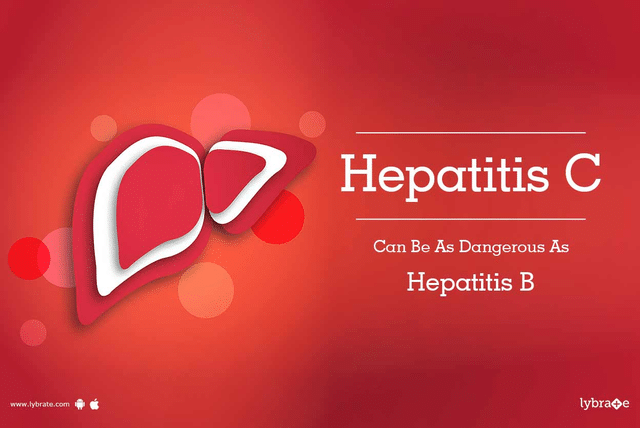Hepatitis C: Can Be as Dangerous as Hepatitis B
Hepatitis C is a Viral Infection That is Little Talked About, But Can Be As Dangerous As Hepatitis B
Most people have head or what became in the 1980s and '90s the dreaded AIDS virus. With time and the availability of medicines, it ceased to be a killer. However, the knowledge of it helped stem its spread. Most people, unfortunately, don't realize that hepatitis C is also a killer, simply because not much has been said about it. In fact, it is also a virus, but is 10 times more infectious than HIV.
Hepatitis C is transmitted through the blood, and is usually passed on to women through infected needles and sex. At-home glucometers are often shared, or sometimes a woman's own lifestyle or her partner's lifestyle before marriage may put her at risk, because the virus can stay in the blood for years. It is also transmitted through blood products, like in the case of a transfusion, though in the case of pregnant women, this is not so common.
The dangers
The virus affects 1 in every 100 people in India, while globally 180 million are infected with it. Sometimes, it may just pass through the body, like many other viruses do, but sometimes, it can remain. If detected quickly, within six months or so, cure rates are high. the problem is that it is often not easy to detect, as symptoms resemble those of a regular seasonal viral infection: fatigue, nausea, loss of appetite. If it remains in the body, becoming chronic, then it may progress to liver disease. But the hepatitis C virus (HCV) doesn't have to be a killer. You can conquer it with these moves.
What you should do before
A number of couples who come to me have planned pregnancies-they opt for a baby, rather than the baby just 'happening' to them. This not only helps family planning, but it also helps us rule out infections or treat them if present. Usually, in the first trimester, your gynecologist will ask you to do a simple blood test for HIV, hepatitis B and C. In the case of a planned pregnancy, visit your doctor beforehand and ask if you need to take these tests before you conceive. However, there is no vaccine for HCV yet.
What you should do after
If a woman find out in the first trimester that she is hepatitis C positive, there's nothing much that can be done, as anti-viral medications cause birth defects, so a mother can only be put on them after delivery. She is advised to continue the pregnancy. A baby's chance of acquiring the infection in utero is between 5 and 7%. While this is not high, parents may like to avoid the risk. However, co-infection with HIV (if the mother is HIV positive) pushes the risk up to 19.4%. The pregnancy itself will not be hampered by the HCV infection. Nor does the risk of transmission to the child have anything to do with the mode of delivery-either vaginal or C-section. In India, there is little data on HCV transmission from mother to child. However, once the baby is born, the pediatrician may not do an immediate test to check for the virus, as it generally clears out from the baby's system in a year or so. Testing may only be done at 18 months.



+1.svg)
